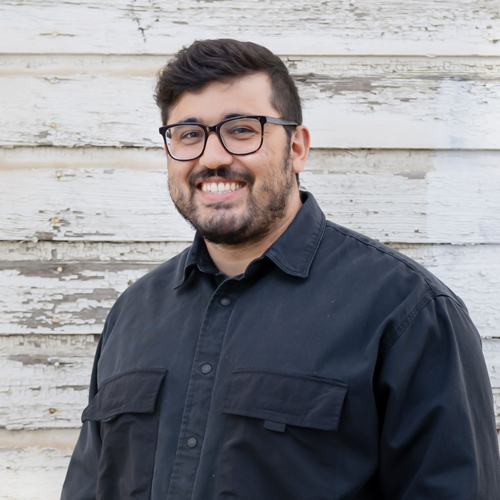Learn How A Children’s Dentist in Calgary Can Help With Pediatric Sleep Apnea
A lot of adults snore, but it’s not typically something we are expecting to hear from a child. If you put your child to bed every night only to notice that they start snoring they may be one of the less than 4% of children who are exhibiting symptoms of pediatric obstructive sleep apnea. Hearing a young child snore can be a little bit disconcerting because it is typically a sign of something going on. Consult a children’s dentist in Calgary to learn more about pediatric sleep apnea.
What is pediatric obstructive sleep apnea?
Pediatric obstructive sleep apnea is very similar to adult sleep apnea. It is, to put it simply, a sleep disorder where the child’s upper airway is partially or fully blocked. This sounds quite scary, and to be fair, it is a little bit worrisome because pediatric obstructive sleep apnea does prevent proper airflow.
This momentary disruption of airflow is brief but repeated, which is why you hear your child snoring during the night. One of the biggest issues with pediatric obstructive sleep apnea is that it prevents your child from having a proper night’s sleep. The disorder in and of itself isn’t necessarily dangerous, but it can have a bad effect on the child’s overall health. Children need sleep, and if a proper night’s sleep isn’t occurring because of pediatric obstructive sleep apnea, a range of other symptoms may start to develop. Typically, children with this sleep disorder may being to exhibit problematic behavioral issues as a result of poor rest.
What are the symptoms of pediatric obstructive sleep apnea?
Of course, the most obvious symptom of this sleep disorder is snoring. Hence why you’re likely hearing those short, repeated sounds of the child’s breathing momentarily pausing. You also may notice symptoms such as teeth grinding, mouth breathing, long pauses in between breaths, sweating during the night, bed wetting, general disruptions in sleep, or even night terrors.
Due to this rather wide range of symptoms, many parents don’t think that the issue is obstructive sleep apnea. In fact, many children who suffer from pediatric obstructive sleep apnea are actually misdiagnosed with Attention Deficit Hyperactivity Disorder, or ADHD, because of the behavioral issues that present due to lack of sleep.
What causes pediatric obstructive sleep apnea?
The most common cause of this sleep disorder is actually a family history. Obstructive sleep apnea, in general, is a genetic condition, meaning that it is passed down from both or either parent. Thus, many children inherit pediatric obstructive sleep apnea because they have inherited a lot of the facial features of their parents.
Being Overweight
As with adults, childhood obesity or a high body mass index is one of the leading causes of obstructive sleep apnea. In adults, you’ll notice that snoring caused by obstructive sleep apnea often occurs in those who are either older or very overweight. Well, the same goes for children. In relevant cases, proper nutrition, exercise, and weight management can help to reduce the child’s sleep apnea.
Anatomy
As mentioned previously, children often inherit the facial features of their parents can lead to obstructive sleep apnea. Often, the anatomy of the mouth, jaw, or throat being particularly narrow can make a child more susceptible to this sleep disorder. When we sleep, our muscles relax. This occurs all over our body including our throat, mouth, and jaw. If your child genetically has a narrower airway and slightly larger tongue, this can cause the obstruction of the airway when asleep.
Abnormal Oral Tissues
If a child has abnormally obstructive oral tissue, sometimes known as a frenum, it can cause obstructive sleep apnea. These abnormal oral tissues prevent the proper functioning of the tongue and lips. The tongue, in particular, is essential to our breathing. If the position of the tongue in the mouth is incorrect it can impact upper jaw development and this, in turn, can cause breathing to be abnormal.
Enlarged Tonsils
Both enlarged tonsils and enlarged adenoids can prevent sufficient airflow during the night when a child is sleeping. These enlarged tonsils and adenoids can be a reaction to environmental irritants or an allergic reaction caused by most common allergens including pollen, dust, and pet dander.
How a Children’s Dentist In Calgary Can Help With Sleep Apnea
The good news is that if your child is exhibiting symptoms of pediatric obstructive sleep apnea a children’s dentist in Calgary may be able to help. As you can see from the causes listed above, some cases of this sleep disorder can be treated without dental intervention. However, there is oral therapy that can help in some of these circumstances.
Oral appliance therapy, which can be often administered by a children’s dentist in Calgary, helps to gently encourage the upper jaw to grow wider. This, in turn, can open up the airway by improving airflow through the nose and increasing the overall size of the upper jaw.
Schedule A Free Consultation With A Children’s Dentist in Calgary Today
If you think that your child is suffering from pediatric obstructive sleep apnea, visiting a children’s dentist in Calgary may be a good idea. Most pediatric dentists have the expertise to assist a child and help to alleviate the symptoms that they are experiencing by providing them with oral appliance therapy, such as a pallet expander. Remember, this might be critical because often it’s not just snoring that’s a problem. Undiagnosed pediatric obstructive sleep apnea can lead to serious behavioral issues in children due to a lack of proper, restful sleep. Ask your children’s dentist in Calgary how they might be able to help your child today. If you have questions about sleep apnea, contact Inglewood Family Dental today to arrange a consultation with an experienced Calgary dentist.
Follow us on Facebook!


